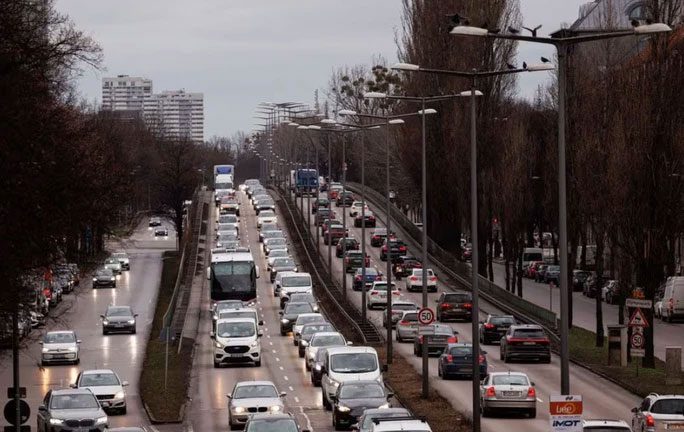Air pollution claimed the lives of over 500,000 people in the European Union (EU) in 2021, and approximately half of these deaths could have been prevented by reducing pollution to levels recommended by health experts.
This information was reported by researchers from the European Environment Agency (EEA) on November 24.
According to the study, 253,000 premature deaths were due to PM2.5 fine particulate matter levels exceeding the maximum limits recommended by the World Health Organization (WHO). Additionally, over 52,000 deaths resulted from excessive nitrogen dioxide levels, and 22,000 deaths were linked to short-term exposure to extremely high ozone levels.
Virginijus Sinkevičius, the EU Environment Commissioner, stated that these figures serve as a reminder that air pollution remains a top environmental health issue in the EU.

Heavy traffic on the streets of Munich, Germany. (Photo: REUTERS)
From 2005 to 2021, deaths caused by PM2.5 in the EU decreased by 41%, with the EU aiming for a 55% reduction by the end of this decade. Sinkevičius noted that while air quality is improving, the EU must do much more to tackle pollution issues.
The burning of fossil fuels, driving, and livestock farming emit large amounts of toxic gases and harmful particulate matter that humans breathe in. The smallest of these particles, known as PM2.5, can enter the bloodstream, spreading throughout the body and damaging organs from the brain to reproductive systems.
Leena Ylä-Mononen, Executive Director of the EEA, stated: “The positive news is that authorities at the European, national, and local levels are taking action to reduce emissions through measures such as promoting public transport or cycling in city centers and through amending environmental pollution laws.”


















































